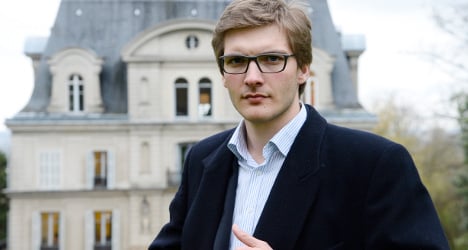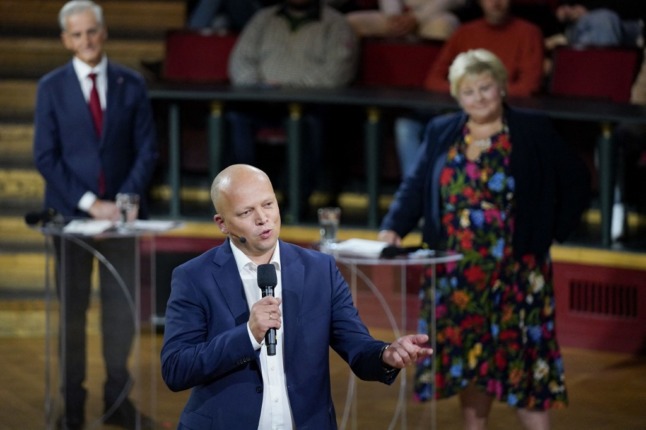Who is Robin Reda?
He became France’s youngest elected mayor after his centre-right UMP party pulled in 52.6 percent of the vote last Sunday in the Parisian suburb of Juvisy. Since Sunday the laurels have flowed in from every direction, including from former president Nicolas Sarkozy, who personally called to say, “You did better than me!”
How’d he do it?
Reda has been obsessed with politics since he was a child. While other French boys might have had posters of footballers or top models tacked onto their bedroom walls, Reda’s room was adorned with the images of the members of former President Jacques Chirac’s cabinet.
As a precocious 11-year-old he remembers feeling moved enough by the 2002 presidential election to shout ‘Vote Chirac’ as he walked to the polling station with his mum and dad. By the time he was 15 he was a volunteer in local politics handing out campaign flyers and sticking up electoral posters.
He also has had the fortune of running for election at a historically bad moment for the Left. Though Juvisy was under the control of leftist politicians for the past four decades, its voters like millions across France are disgusted with the Socialists government’s inability to fix France’s economy. As a result they voted for right or far right candidates.
Can someone Reda’s age really run a French town?
He hasn’t graduated from college yet, but he plans on devoting a mere two half-days per week to his studies at France’s prestigious Scienes Po university from now on. The rest of his time will go to the business of Juvisy and its 15,000 residents.
Some of France’s best-known right wingers are also thoroughly convinced of his abilities. Paris Mayor candidate Nathalie Kosciusko-Morizet, better known as NKM, told French daily Le Parisien he’s got a bright future.
“He’s exceptionally gifted in politics and a great guy. He has an exuberant side, almost extroverted that impresses me,” Kosciusko-Morizet said. “But behind that he is precise, methodical and talented. He’ll go far.”
Reda was always confident the voters would look past his age.
“Youth is a flaw that never lasts very long…the voters spoke clearly, age isn’t a problem for them. We were able to convince them with our platform and our energy," he told Le Parisien.
What does he believe in?
He considers himself a moderate, who was inspired by Sarkozy's rise. Yet he told AFP he feels closer to people like NKM, who are slightly out of the of the usual UMP box. As he describes it, Reda is on the Right but concerned with social issues and he seeks to represent the most number of voters possible.
He also seems to embrace some issues that have been landmines for the Right. For example, on Saturday, when his mayorship becomes official with a city council vote, he is to perform his first marriage and it will be to a gay couple. "Each to his own,” he told AFP.
He plans to focus on public safety, a UMP core issue, and the renovation of the Juvisy’s rail hub, which sees some 60,000 commuters per day.
Surely he's a little nervous?
He admits he’s a “little apprehensive” for what’s to come, though he says he’s ready, and after all “he’d run for mayor to win”.
He is certain however to rub shoulders with some big fish while doing his work. Reda says he’s confident, “They will have to pay attention to a new crocodile.”
But he adds, “Though for the moment I’m just a Haribo (candy) crocodile.”



 Please whitelist us to continue reading.
Please whitelist us to continue reading.
Member comments